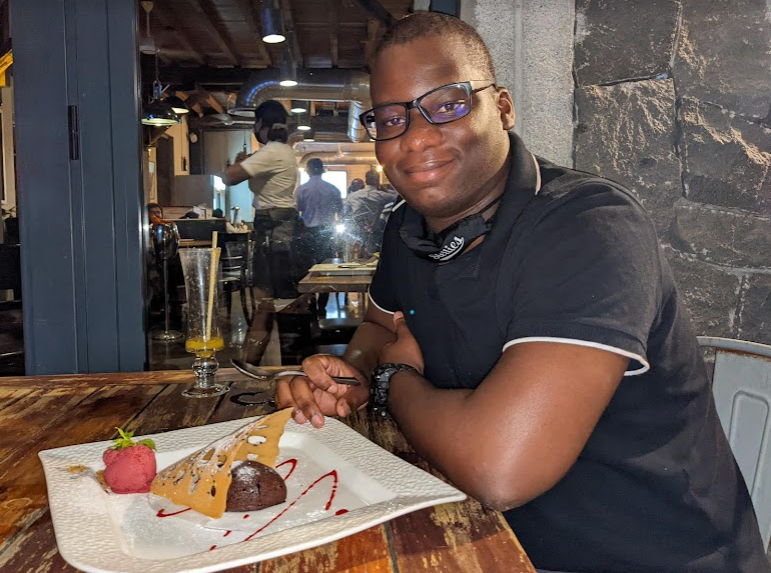A testimonial from Sam and the importance of saying thank you
Today was another long day. I got back from the office to find a whole bunch of messages on different platforms and I made myself a cup of tea before sitting down and going through them. One was a voice note from Sam Peta. Sam did a MSc with me and James Baxter-Gilbert, defending his thesis back in 2022 (see here). The voice note really surprised me. I've asked Sam, and he's given his consent to transcribe it here for the blog:
“Morning John, I hope you're good.
I think I forgot to tell you this but some time last year I had a job interview. I think it was a research field assistant for the Cape Parrot Project in Hogsback. It was like a brief interview to ask about who I am and what I do what was my MSc was about.
I told the lady, I don't remember her name, that I was supervised by Prof John Measey, and she said “Oh, I know John Measey!”
I was like whoa, okay, that's nice. And then she started telling me about her project with the leopard toad and that was quite amazing.
Even with one of the guys that I work with, he said that you taught him, I think when he was in Stellies.
So yeah, I think that the point that I'm trying to make is that I wouldn't be where I am now if it wasn't for you. The amazing skills that I've learned from you, the amazing mindset that I have when it comes to research, or looking at the world the way I look at things. So I'm grateful for the support that you've given me all these years, and now I have the confidence to say that I would like to believe that there's a great future in terms of research, and in terms of finding my way around. They're the small parts of life when it comes to working, is because of the skills that I've learned from people like you and James [Baxter-Gilbert] have helped me so much. I'll forever be grateful for that.
Even when I hear people talk about you, I get that kind of inspiration to say, okay, I've been under the supervision of one of the most incredible scientists in the world. So yeah, I'd like to believe that, hopefully in some way we can just keep in touch enough to work together at some point in the future. Yeah, I'm just wanting to say, before I start my new working day, thanks so much John for everything.”
Firstly, I’m incredibly grateful to Sam for reaching out and saying such nice things. It’s so great to hear that there’s been a lasting positive effect on students that have worked in my lab. Second, is that I have learned that it’s so very important to actually say these things to people. To actually thank them instead of just thinking that it would be nice. It’s not just important that they hear you say it, but also because you might be surprised what you hear in reply.
Here’s my response to Sam:
“Hey Sam – Thanks so much for your kind words. I think what you forget is that this does not only go in one direction. I learn an incredible amount from my students, including you. This is one of the things that makes being an advisor such an enjoyable experience, because I get to work with such enthusiastic people. It’s really my privilege to have worked with you.”
I used to think when I heard aged professors talking about their wonderful postgraduate students that they were just paying lip service to the team of people who really did all the work, but with no thanks. However, what I’ve learned, over the fullness of time, is that for many professors they truly do appreciate their team and the benefit goes both ways.
So, if you have read this far and you have someone in your life that you are thinking – yeah, they really helped me – I’m asking you to reach out to them now and say thank you. If you can, leave a voice note (like Sam did) so that they can hear your voice and know that you really do mean it. It will mean so much to them, and like Sam you may well get some words of wisdom to continue to propel you forwards.

